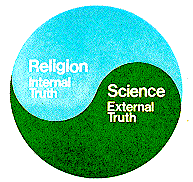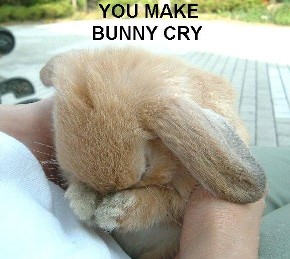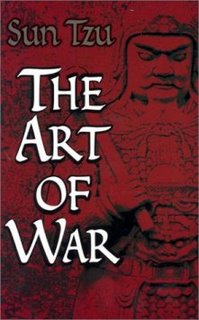39th entry - Questions about life
Life, the Universe and Everything
My prolific friend and fellow-Blogger, Teflonman, has published a set of interesting questions about life and gave his responses to them on his blog. The questions originated from another blog by Probligo. My responses, which I feel are not as well-expressed, entertaining and tongue-in-cheek as my dear friend Teflonman’s responses, are below.
1. Why is there poverty and suffering in the world?

In general, the simple answer is that we live in an imperfect world. Wealth distribution is far from being equal. At the macro level, I define poverty as a state of destitution in which those experiencing it live from hand to mouth on a daily basis, without any hope of improvement in their condition in the immediate future. They often experience starvation or malnutrition, and are unable to have access to basic necessities (water, electricity and fuel) or healthcare. They may not even have a proper shelter over their heads. Such poverty is the result of unfavourable geography and/or natural disasters, or poor governance (rampant corruption is symptomatic of this factor), war (with resources being diverted to destruction rather than construction) and/or political persecution (affecting only certain societal sub-strata). At the micro level, I define poverty as a state of physical deprivation. This may be “self-induced” e.g. due to poor financial planning and management or experiencing the consequences of social ills (e.g. gambling addiction, alcohol or substance abuse) or attributed to “environmental factors” e.g. discrimination against specific sub-strata of society, debilitating unforeseen circumstances). Poverty is usually not a matter of choice; nobody wants to be poor. However, in the “self-induced” cases, poverty is the result of poorly-made lifestyle choices.
I perceive suffering to be a state of mind. What is suffering to one person may be a state of complete bliss for another. For instance, sleeping on a bed of nails or standing on one foot continuously for several years are perceived to be acts of torture by most people, but in certain religious practices these extreme acts accompanied by appropriate meditation are recommended as means of gaining spirituality. Sado-masochism is considered kinky and necessary for sexual enjoyment and climax by some people but deemed by others to be perverse and even insane acts. Viewed from this perspective, suffering is entirely a matter of choice. We can decide to remove ourselves from suffering by positive action or positive thinking. If your boss is a tyrant to you, you can end your suffering by quitting your job, confronting your boss, or comforting yourself that you might learn something in the process. If your spouse is abusing you, you can end the relationship or try to get professional help.
2. What is the relationship between science and religion?

Both are man-made, and both cannot be proven. Scientific “facts” and religious doctrines are based on assumptions, deductions and past interpretations. Both are systematic. Both are neutral in nature but they have the potential to be utilised for good (improving lives and making societies more civilised and progressive) or for bad (abusing scientific knowledge or religious authority to tyrannise others). To me, the only difference is that religion focuses on how humans relate to “the unknown” and to each other, and science focuses on gaining knowledge about their environment and conquering it. As Teflonman pointed out, some people view science as a religion (there is even a religious order of “scientology”). I think it is silly trying to prove one is better or worse than the other – both play important roles in keeping us alive and both should go hand in hand. Without scientific discoveries (the earliest of which is the discovery of agriculture and metals), the entire human race would have all died from starvation and there would not be anything left of nature to preserve, and without the development of religious systems, most societies would not have evolved or become civilised (morality forms the basic foundation for law and order in society).
3. Why are so many people depressed?

I see depression as a phase that most people will go through in life, as nothing will ever go smoothly for an extended period of time. The most common cause of depression is the inability to cope with the loss of something that matters to us – loss of health (e.g. if I discover that I have a terminal illness or a loved one has it), loss of livelihood or finances (e.g. immediately following retrenchment or after the stock market plummeted and the shares we bought become worthless), loss of loved ones (after a love relationship has ended or the demise of loved ones), or even when the soccer team that you supported lost in the World Cup finals. People tend to suddenly discover how precious things are and try to hold on to them when they are just about to lose them, especially if they usually take these things for granted. This makes them unable to cope with the loss, and unable to accept the reality, resulting in depression.
4. What are we all so afraid of?

I think everybody is afraid of something sometime in their lives, and it differs from person to person. However, most of us are fearful of the unknown, what we cannot control. We try to come up with ways to predict the future, to make the unknowns known, but nobody can say for certain that these methods work all the time. Our fear of the unknown is manifested in our fear of death; nobody knows for sure what really happens after death, notwithstanding what religious texts say. As a result, no sensible person alive wants to die, all else being constant. Much of scientific and religious research since ancient civilisation has been preoccupied with finding various methods of self-preservation to prolong our natural lives.
5. When is war justifiable?

War is a state of prolonged conflict between 2 entities (countries, organisations and people). My view is that it should only be waged as a last resort: when your country, family or self is under direct attack from an aggressor and there is no way out except to fight and defend. When 2 entities are in disagreement, bilateral negotiation, sometimes with a mutually-accepted mediator, is the best way to obtain a “win-win” solution and continue friendly relations after the tension is settled. When talks break down, or when one or both entities are not seeking an amiable solution for developing long-term friendly relations, it makes sense for both entities to try to achieve “win-lose” in their favour by going to war. In such cases, Sun Tzu recommends that before deciding to go to war we need to try estimating our chances of winning vis-à-vis our enemy’s. We can analyse this based on SWOT (strengths, weaknesses, opportunities and threats – Sun Tzu: “understand yourself and your enemy, and exploit the terrain and weather”) and other strategic tools available out there. Failing to do this, we may either end up losing (in which case it might have been more prudent not to fight the war and wait for an opportunity to engage the enemy again) or being in a “lose-lose” situation where neither entity wins anything.
6. How would God want us to respond to aggression and terrorism?

From a Christian’s point of view, God is Love and Him commandments are simply to love Him and love one another (i.e. fellow human beings). Hence, God would never condone aggression or terrorism, and we should condemn them. However, this is a simplistic view to take. In reality, we usually respond to our aggressors with as much aggression as we can afford (based on our resources) in order to subdue them. We also respond to terrorism very much in the same way. This creates a never ending cycle of attack and counter-attack. Fighting is easier than “turning the other cheek” so to speak, but the latter is not guaranteed to work given the assumption that humans are never satisfied. Since when have bullies stopped attacking their victims when the victims choose to suffer in silence? Yet, it is difficult in reality to identify who the real “bad guy” is.
7. How does one obtain true peace?

On a macro level, “true peace” is a state of utopia where everybody is at peace with each other. If you ask me, it would take no less than a miracle for this to happen. On a micro level, one can easily obtain true peace at any given time when he is at peace with himself, his environment and other people. It is much harder to maintain true peace once it has been attained.
8. What is the meaning of life?
Different people have different aims in life. People who live aimlessly will find no meaning in their existence; their actions are inconsequential and nobody gives a damn if they live or die. People who have a goal in life will work towards it and therefore find their existence meaningful. For some, this goal is to create happiness for themselves and/or others. For some, this goal is to cause another person misery. To each his own
My prolific friend and fellow-Blogger, Teflonman, has published a set of interesting questions about life and gave his responses to them on his blog. The questions originated from another blog by Probligo. My responses, which I feel are not as well-expressed, entertaining and tongue-in-cheek as my dear friend Teflonman’s responses, are below.
1. Why is there poverty and suffering in the world?

In general, the simple answer is that we live in an imperfect world. Wealth distribution is far from being equal. At the macro level, I define poverty as a state of destitution in which those experiencing it live from hand to mouth on a daily basis, without any hope of improvement in their condition in the immediate future. They often experience starvation or malnutrition, and are unable to have access to basic necessities (water, electricity and fuel) or healthcare. They may not even have a proper shelter over their heads. Such poverty is the result of unfavourable geography and/or natural disasters, or poor governance (rampant corruption is symptomatic of this factor), war (with resources being diverted to destruction rather than construction) and/or political persecution (affecting only certain societal sub-strata). At the micro level, I define poverty as a state of physical deprivation. This may be “self-induced” e.g. due to poor financial planning and management or experiencing the consequences of social ills (e.g. gambling addiction, alcohol or substance abuse) or attributed to “environmental factors” e.g. discrimination against specific sub-strata of society, debilitating unforeseen circumstances). Poverty is usually not a matter of choice; nobody wants to be poor. However, in the “self-induced” cases, poverty is the result of poorly-made lifestyle choices.
I perceive suffering to be a state of mind. What is suffering to one person may be a state of complete bliss for another. For instance, sleeping on a bed of nails or standing on one foot continuously for several years are perceived to be acts of torture by most people, but in certain religious practices these extreme acts accompanied by appropriate meditation are recommended as means of gaining spirituality. Sado-masochism is considered kinky and necessary for sexual enjoyment and climax by some people but deemed by others to be perverse and even insane acts. Viewed from this perspective, suffering is entirely a matter of choice. We can decide to remove ourselves from suffering by positive action or positive thinking. If your boss is a tyrant to you, you can end your suffering by quitting your job, confronting your boss, or comforting yourself that you might learn something in the process. If your spouse is abusing you, you can end the relationship or try to get professional help.
2. What is the relationship between science and religion?

Both are man-made, and both cannot be proven. Scientific “facts” and religious doctrines are based on assumptions, deductions and past interpretations. Both are systematic. Both are neutral in nature but they have the potential to be utilised for good (improving lives and making societies more civilised and progressive) or for bad (abusing scientific knowledge or religious authority to tyrannise others). To me, the only difference is that religion focuses on how humans relate to “the unknown” and to each other, and science focuses on gaining knowledge about their environment and conquering it. As Teflonman pointed out, some people view science as a religion (there is even a religious order of “scientology”). I think it is silly trying to prove one is better or worse than the other – both play important roles in keeping us alive and both should go hand in hand. Without scientific discoveries (the earliest of which is the discovery of agriculture and metals), the entire human race would have all died from starvation and there would not be anything left of nature to preserve, and without the development of religious systems, most societies would not have evolved or become civilised (morality forms the basic foundation for law and order in society).
3. Why are so many people depressed?

I see depression as a phase that most people will go through in life, as nothing will ever go smoothly for an extended period of time. The most common cause of depression is the inability to cope with the loss of something that matters to us – loss of health (e.g. if I discover that I have a terminal illness or a loved one has it), loss of livelihood or finances (e.g. immediately following retrenchment or after the stock market plummeted and the shares we bought become worthless), loss of loved ones (after a love relationship has ended or the demise of loved ones), or even when the soccer team that you supported lost in the World Cup finals. People tend to suddenly discover how precious things are and try to hold on to them when they are just about to lose them, especially if they usually take these things for granted. This makes them unable to cope with the loss, and unable to accept the reality, resulting in depression.
4. What are we all so afraid of?

I think everybody is afraid of something sometime in their lives, and it differs from person to person. However, most of us are fearful of the unknown, what we cannot control. We try to come up with ways to predict the future, to make the unknowns known, but nobody can say for certain that these methods work all the time. Our fear of the unknown is manifested in our fear of death; nobody knows for sure what really happens after death, notwithstanding what religious texts say. As a result, no sensible person alive wants to die, all else being constant. Much of scientific and religious research since ancient civilisation has been preoccupied with finding various methods of self-preservation to prolong our natural lives.
5. When is war justifiable?

War is a state of prolonged conflict between 2 entities (countries, organisations and people). My view is that it should only be waged as a last resort: when your country, family or self is under direct attack from an aggressor and there is no way out except to fight and defend. When 2 entities are in disagreement, bilateral negotiation, sometimes with a mutually-accepted mediator, is the best way to obtain a “win-win” solution and continue friendly relations after the tension is settled. When talks break down, or when one or both entities are not seeking an amiable solution for developing long-term friendly relations, it makes sense for both entities to try to achieve “win-lose” in their favour by going to war. In such cases, Sun Tzu recommends that before deciding to go to war we need to try estimating our chances of winning vis-à-vis our enemy’s. We can analyse this based on SWOT (strengths, weaknesses, opportunities and threats – Sun Tzu: “understand yourself and your enemy, and exploit the terrain and weather”) and other strategic tools available out there. Failing to do this, we may either end up losing (in which case it might have been more prudent not to fight the war and wait for an opportunity to engage the enemy again) or being in a “lose-lose” situation where neither entity wins anything.
6. How would God want us to respond to aggression and terrorism?

From a Christian’s point of view, God is Love and Him commandments are simply to love Him and love one another (i.e. fellow human beings). Hence, God would never condone aggression or terrorism, and we should condemn them. However, this is a simplistic view to take. In reality, we usually respond to our aggressors with as much aggression as we can afford (based on our resources) in order to subdue them. We also respond to terrorism very much in the same way. This creates a never ending cycle of attack and counter-attack. Fighting is easier than “turning the other cheek” so to speak, but the latter is not guaranteed to work given the assumption that humans are never satisfied. Since when have bullies stopped attacking their victims when the victims choose to suffer in silence? Yet, it is difficult in reality to identify who the real “bad guy” is.
7. How does one obtain true peace?

On a macro level, “true peace” is a state of utopia where everybody is at peace with each other. If you ask me, it would take no less than a miracle for this to happen. On a micro level, one can easily obtain true peace at any given time when he is at peace with himself, his environment and other people. It is much harder to maintain true peace once it has been attained.
8. What is the meaning of life?
Different people have different aims in life. People who live aimlessly will find no meaning in their existence; their actions are inconsequential and nobody gives a damn if they live or die. People who have a goal in life will work towards it and therefore find their existence meaningful. For some, this goal is to create happiness for themselves and/or others. For some, this goal is to cause another person misery. To each his own

1 Comments:
Hi Sunshine,
How are doing?
Foo Keong
www.psa91.com
Post a Comment
<< Home